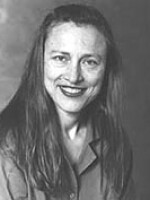STEVE INSKEEP, host:
It's MORNING EDITION from NPR News. Good morning. I'm Steve Inskeep.
NASA has reversed itself and is now promising to release the results of an air safety survey. The study was based on four years of interviews with thousands of pilots of commercial and general aviation aircraft. It suggests that the skies are more hazardous than the government has acknowledged.
NPR's Kathleen Schalch reports.
KATHLEEN SCHALCH: At a hearing on Capitol Hill yesterday, Jim Hall, former chairman of the National Transportation Safety Board, said the findings have him worried.
Mr. JIM HALL (Former Chairman, National Transportation Safety Board): This survey reportedly states that runway incursions and near collisions occur at least twice as much as is commonly thought.
SCHALCH: Hall said the information should be made public as soon as possible.
Mr. HALL: If we don't know something is broken, we cannot fix it.
SCHALCH: NASA conducted the study as part of a project launched in the late 1990s, reduced the number of fatal aviation accidents. Reporters spent more than a year trying to get the results under the Freedom of Information Act. But NASA turned the request down saying it didn't want to unduly upset air travelers and hurt airline profits. That didn't sit well with lawmakers who grilled NASA administrator Michael Griffin.
Dr. MICHAEL GRIFFIN (Administrator, NASA): We did say that. That was the wrong thing to have said. I apologize that anyone in my agency did say that.
SCHALCH: Griffin told lawmakers NASA will release the survey but probably not until the end of the year. First, it wants to review the data to make sure it's accurate. The agency also needs to remove information that could reveal the identities of the pilots and the airlines they worked for. The pilots spoke candidly to telephone interviewers in exchange for the pledge that they would remain anonymous.
Kathleen Schalch, NPR News, Washington. Transcript provided by NPR, Copyright NPR.






